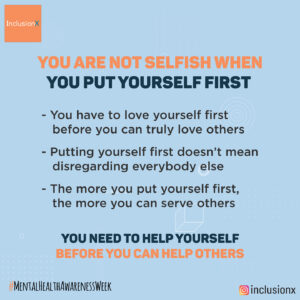Tamima Tamanna Saba
Poverty and its effects
The definition of poverty varies according to social, economic and cultural points of view. Generally, it is the state of not having enough material possessions or income to fulfill basic needs like food, clothing, shelter etc. It can also mean economic deprivation, low socio-economic status, unemployment, low education among others. And the effects of poverty include both physical and mental health issues. According to a Global Burden of Disease study of 2012, mental and behavioral disorders account for nearly a quarter of the disability burden in developing countries .
Strong evidence shows poverty can both be the causal and consequential factor for mental ill health. The populace who are unable to afford basic living and have lower employment opportunities are more exposed to unfavorable living standards and no or less access to quality health care. This leads to risks of developing mental disorder which in turn leads to discrimination in employment opportunities preventing families from leaving poverty, creating a vicious cycle.
Stress is a leading contender on how poverty affects us. In a 2009 study conducted in Mexico, it was found that young children had lower cortisol levels compared to kids from families that didn’t get extra money. Studies also show individuals with the lowest socio-economic status are 8 times more prone to schizophrenia. Some evidences suggest that poverty can lead to mental illness, especially in cases of disorders like depression. An incident that took place in rural China in 2016 was thought to have happened due to psychological issues- a mother killed her four young children and then herself last, many people pointed out it was due to life circumstances as the family lived in extreme poverty. So, we all can agree that mental health care is surely a need for the poor.
The barriers to mental health care
WHO found in a study that 31% of countries have no specified mental health budget, and in the figure includes mostly developing countries. Also, prevailing social stigma in most societies about mental health care works as a great disadvantage. Available services are usually very costly and can thus be afforded by the rich mostly. Though cheap treatments may be available but in the developing countries 76 to 85% of people with severe mental disorders do not receive the care.
How do we break the cycle?
Mental ill health can lead to physical health issues also and is overall harmful for an economy’s well-being. And, thus one of the causal factors such as poverty should be addressed to fight it. The Bangladesh economy went through an 8% economic growth last year, yet one in five people live below the poverty line and the mean wage is less than $5 a day. However, eradicating poverty is one of the seventeen Sustainable Development Goals (SDGs) set by the United Nations. So, there have been certain advancements to face poverty.
Regular mental disorders need to be placed with importance, with other diseases associated with poverty by policy-makers and donors. Schemes such as investment in education and provision of micro-credit may have strong benefits in reducing risks of mental ill health. Also, secondary prevention must concentrate on the ability of primary care services to provide effective treatment. Additionally, in order to break the links between economic inequality, poverty, and poor mental health, policy makers and providers must take a multi-level, prevention-oriented approach. Awareness and psycho-social programs should be designed for the long term so that we can lift off the stigma on taking care of mental health and people can safely maintain a healthy life. Programs including all classes of people is something tough but achievable, it will help in facing the tension among social groups and promote understanding and inclusion. Through careful screening, clinical care, social services and population advocacy, mental health professionals can work together with clients to improve health for all.
InclusionX writing team
InclusionX Mental Wellbeing Workshop Series For Schools.
Project funded by
EMK Center
References:
Patel V, Kleinman A, Poverty and common mental disorders in developing countries, Bull World Health Organ. 2003; 81: 609-615
Image from:



